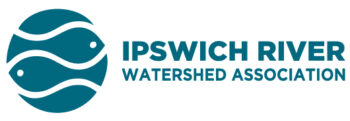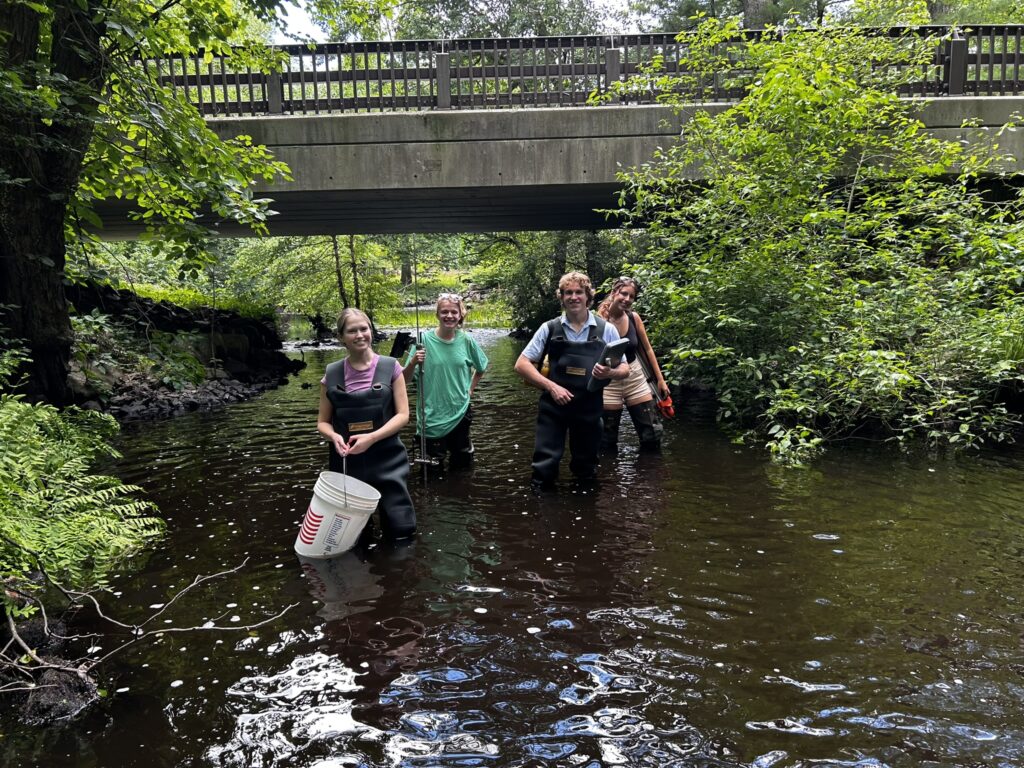Pictured left to right: IRWA 2024 Summer Interns Molly Stevens, Maeve Hitchcock, Aidan Davie, and Olivia Whynott
Hi! My name is Molly Stevens, and I’m IRWA’s Science and Restoration intern. I’m a rising senior at Dartmouth College, currently living in Nahant, Massachusetts for the summer. At Dartmouth, I’m double majoring in Earth Sciences and English—two admittedly distant and seemingly unrelated fields. I’d like to think they fit together well, though. In my experience, Earth Science, like English, aims to take the tangible world and make sense of it via its own kind of storytelling—data collection, analysis, and interpretation.
This summer, I’m doing exactly that while working with Ryan, our Programs Manager, on IRWA’s three monitoring programs: the RiverWatch, streamflow, and macroinvertebrate monitoring programs. Each program uses a different metric to answer similar questions of river health. For instance, the RiverWatch program uses measurements of dissolved oxygen, temperature, conductivity, and chloride to assess the river’s water quality. Meanwhile, the streamflow program calculates flow based on the river’s geometry and velocity to track changes in the river’s shape caused by hydrological events like floods and droughts. Finally, the
macroinvertebrate program uses data on the diversity and abundance of the aquatic insects at the bottom of the river to evaluate habitat health, another good indicator of water quality.
Ultimately, with this data, we can tell the many evolving stories of the Ipswich River, shaped by both natural variation and anthropogenic climate change. Moreover, this understanding of not only how the river is currently changing but also how it has historically changed informs other initiatives at IRWA including river restoration projects across the watershed, which seek to return the river to its natural, rightful state.
In both my work at IRWA and my Earth Sciences classes, I’m particularly fascinated by this question of a river’s natural state. Rivers are constantly evolving in response to changing hydrology and climate, and in this regard, rivers are dynamic and adaptive systems. However, anthropogenic climate change and pollution have arguably begun to exceed this adaptive capacity, putting our rivers and the wildlife that relies on them at risk. This summer, I’m excited to continue learning about how IRWA responds to these threats in order to protect the Ipswich River. I’m excited too to do my part monitoring the river to tell even a small part of its story.

